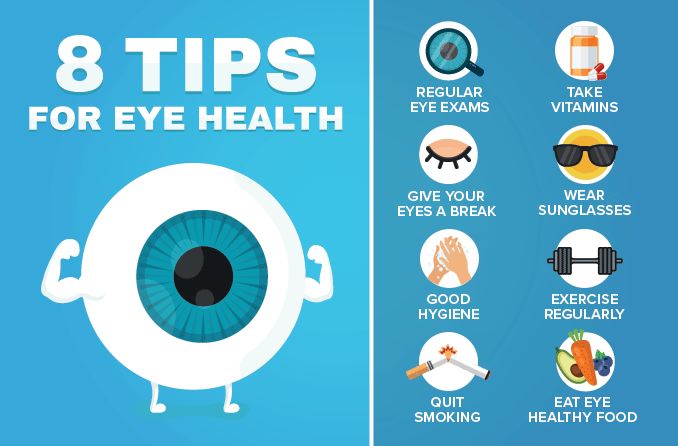Eye Facility in Andalusia: Premier Providers for Vision Care
Eye Facility in Andalusia: Premier Providers for Vision Care
Blog Article
Is Refractive Surgical Procedure Right for You? Aspects to Consider for Better Eyecare
In the realm of eye treatment, the decision to undergo refractive surgical treatment is a weighty one that requires thoughtful factor to consider. From the intricacies of one's ocular health and wellness to the complexities of daily habits and personal expectations, each element holds importance in the broader landscape of refractive surgery candidacy.
Eye Health And Wellness Evaluation
When considering refractive surgical procedure, an extensive eye health and wellness analysis is crucial to examine the suitability of the treatment for every individual. cardiologist andalusia. This examination includes a collection of examinations and evaluations conducted by an eye care specialist to establish the overall health and wellness of the eyes, the visibility of any kind of hidden conditions, and the stability of the refractive mistake
During the evaluation, different factors are taken into account, such as the individual's case history, current eye prescription, corneal thickness, pupil dimension, and tear movie quality. These assessments assist to recognize any kind of contraindications to refractive surgery, such as corneal problems, cataracts, or unattended eye infections. Additionally, the examination helps to handle person assumptions regarding the potential results of the surgical procedure based upon their distinct eye features.
Ultimately, the eye health and wellness evaluation is necessary in making sure the safety and security and effectiveness of refractive surgical treatment, as it supplies useful understandings into the individual's eye health and wellness status and assists determine the most appropriate therapy choices for attaining optimal visual results. (cardiologist andalusia)
Way Of Life Evaluation
A detailed way of living evaluation is integral in establishing the viability of refractive surgical treatment for a person's aesthetic correction needs. Way of living factors such as line of work, leisure activities, and day-to-day activities play an essential function in the decision-making process pertaining to refractive surgery.
In addition, way of life habits such as sports participation, outside activities, or even skin care regimens can influence the healing procedure and total success of refractive surgery. By conducting an extensive way of life assessment, eye treatment professionals can customize their suggestions and therapy strategies to satisfy the one-of-a-kind requirements of each client, eventually leading to boosted aesthetic end results and contentment.
Expectation Alignment

People need to understand that while lots of individuals accomplish 20/20 vision or better adhering to refractive surgical procedure, some may still call for glasses for particular tasks like reading or driving at night. Managing these expectations aids stop dissatisfaction and discontentment post-surgery, leading to a much more favorable general experience for the individual.
Threat Analysis

Aspects that may boost the danger of complications consist of age, certain clinical problems like autoimmune illness, unsteady vision prescription, slim corneas, and impractical patient assumptions. Additionally, choosing a competent and skilled cosmetic surgeon, complying with pre and post-operative care directions diligently, and disclosing any pertinent clinical history can assist alleviate risks.
To decrease the chance of problems, ophthalmologists carry out extensive pre-operative analyses to recognize any kind of contraindications to surgical treatment. They additionally discuss the potential threats and benefits with patients throughout the appointment procedure. By participating in open interaction and shared decision-making, both the person and the ophthalmologist can collaborate to establish if refractive surgery is the ideal selection based on individual threat profiles and wanted results.
Appointment Relevance
Taking into consideration the important function more helpful hints of informed decision-making in assessing threats and potential complications in refractive surgical treatment, the consultation process holds considerable importance in leading clients in the direction of optimum end results. During the examination, the ophthalmologist reviews the person's eye health, refractive errors, and general viability for surgical treatment. This preliminary assessment is critical in establishing the most suitable her response procedure for every person, taking into account elements such as corneal density, student dimension, and existing eye conditions.
Additionally, the examination acts as an opportunity for individuals to discuss their expectations, worries, and any questions they might have regarding the surgery. Clear interaction between the doctor and the client is vital to ensure realistic expectations and an extensive understanding of the prospective threats and advantages involved.
In addition, the assessment enables the surgeon to discuss the various medical alternatives readily available, their particular end results, and the post-operative treatment needed. This comprehensive conversation empowers clients to make knowledgeable decisions regarding their eye treatment, bring about better complete satisfaction and end results post-surgery.
Final Thought
In final thought, individuals considering refractive surgical treatment should go through a why not look here comprehensive eye health and wellness evaluation, assess their lifestyle practices, straighten their expectations with potential end results, examine the associated risks, and focus on assessments with eye treatment professionals. These factors play a crucial duty in establishing the viability of refractive surgery for every individual, making certain ideal outcomes and satisfaction with the procedure.
People thinking about refractive surgical procedure frequently have high assumptions regarding the results, anticipating excellent vision without the requirement for glasses or get in touch with lenses. While refractive surgical treatment can substantially improve vision and lower reliance on aesthetic aids, it is important for individuals to comprehend that outcomes might differ based on private aspects such as the degree of refractive mistake, corneal thickness, and total eye health.
By involving in open interaction and shared decision-making, both the ophthalmologist and the person can function with each other to determine if refractive surgery is the appropriate option based on specific danger accounts and desired results.
Considering the critical function of notified decision-making in assessing risks and possible difficulties in refractive surgical treatment, the appointment process holds substantial significance in leading clients towards optimum results. Throughout the consultation, the ophthalmologist evaluates the person's eye wellness, refractive mistakes, and overall suitability for surgical treatment.
Report this page